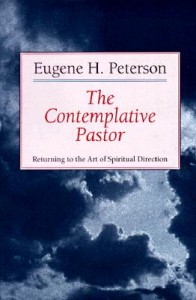Subversive.
Apocalyptic.
These are the adjectives that ought to describe the pastor, according to Eugene Peterson. Though written in 1989, The Contemplative Pastor is just as, if not more, relevant to today’s church culture. The pastors we honor in American evangelicalism often do little or no pastoral work. They are high-achievers, brands unto themselves. They are CEOs of ever-expanding religious empires. They are busy. They tackle problems head-on. They have neither the time nor the patience to plow the fields of the hearts of their congregation.
The pastor should not be busy. “The word busy is the symptom not of commitment but of betrayal. It is not devotion but defection. The adjective busy set as a modifier to pastor should sound to our ears like adulterous to characterize a wife or embezzling to describe a banker. It is an outrageous scandal, a blasphemous affront.” We often search for significance in busyness. If I am busy, then I am important. But this is vanity, argues Peterson. Instead, the pastor should be unbusy enough to do three things: pray, preach, and listen. “The question I put to myself is not “How many people have you spoken to about Christ this week?” but “How many people have you listened to in Christ this week?”
The pastor should not use blunt force, but rather use the subversive methods of the kingdom of God. Jesus, after all, was the subversive par excellence. He preached in parables, which “aren’t illustrations that make things easier; they make things harder by requiring the exercise of our imaginations, which if we aren’t careful becomes the exercise of our faith.” The kingdom which is grown is more permanent and powerful than the kingdom which is imposed. “God does not impose his reality from without; he grows flowers and fruit from within.”
The way the gospel is conveyed is as much a part of the kingdom as the truth presented. -Peterson

